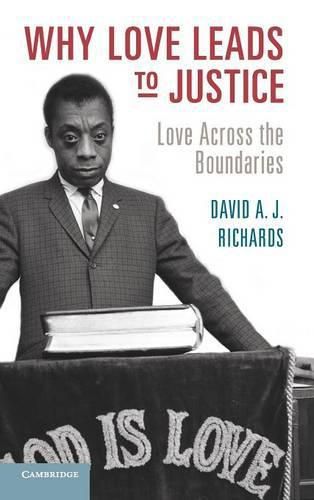Readings Newsletter
Become a Readings Member to make your shopping experience even easier.
Sign in or sign up for free!
You’re not far away from qualifying for FREE standard shipping within Australia
You’ve qualified for FREE standard shipping within Australia
The cart is loading…






This book tells the stories of notable historical figures who, by resisting patriarchal laws condemning adultery, gay and lesbian sex, and sex across the boundaries of religion and race, brought about lasting social and political change. Constitutional scholar David A. J. Richards investigates the lives of leading transgressive artists, social critics, and activists including George Eliot, Benjamin Britten, Christopher Isherwood, Bayard Rustin, James Baldwin, Eleanor Roosevelt, and Margaret Mead. Richards shows how ethical empowerment, motivated by love, allowed these figures to resist the injustices of anti-Semitism, racism, sexism, and homophobia, leading to the constitutional condemnation of these political evils in the United States, Britain, and beyond. Love and law thus grow together, and this book shows how and why. Drawing from developmental psychology (including studies of trauma), political theory, the history of social movements, literature, biography, and law, this book will be a thought-provoking tool for anyone interested in civil rights.
$9.00 standard shipping within Australia
FREE standard shipping within Australia for orders over $100.00
Express & International shipping calculated at checkout
This book tells the stories of notable historical figures who, by resisting patriarchal laws condemning adultery, gay and lesbian sex, and sex across the boundaries of religion and race, brought about lasting social and political change. Constitutional scholar David A. J. Richards investigates the lives of leading transgressive artists, social critics, and activists including George Eliot, Benjamin Britten, Christopher Isherwood, Bayard Rustin, James Baldwin, Eleanor Roosevelt, and Margaret Mead. Richards shows how ethical empowerment, motivated by love, allowed these figures to resist the injustices of anti-Semitism, racism, sexism, and homophobia, leading to the constitutional condemnation of these political evils in the United States, Britain, and beyond. Love and law thus grow together, and this book shows how and why. Drawing from developmental psychology (including studies of trauma), political theory, the history of social movements, literature, biography, and law, this book will be a thought-provoking tool for anyone interested in civil rights.